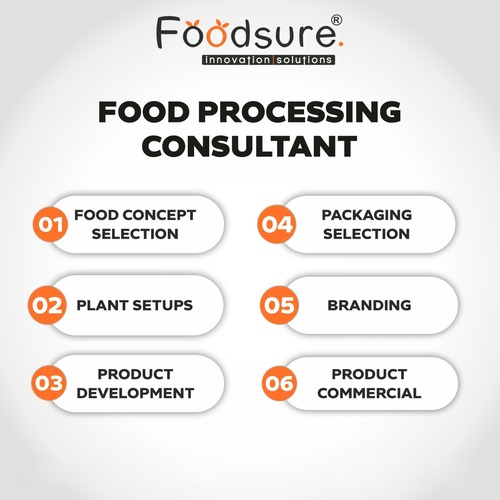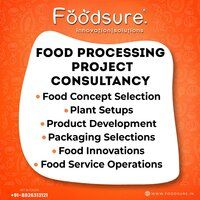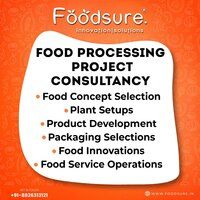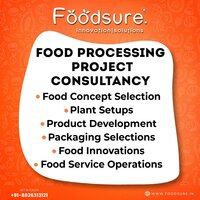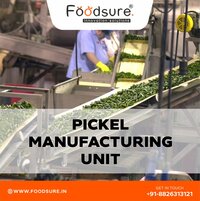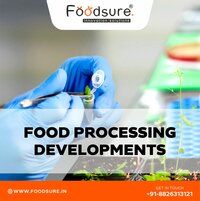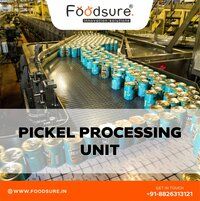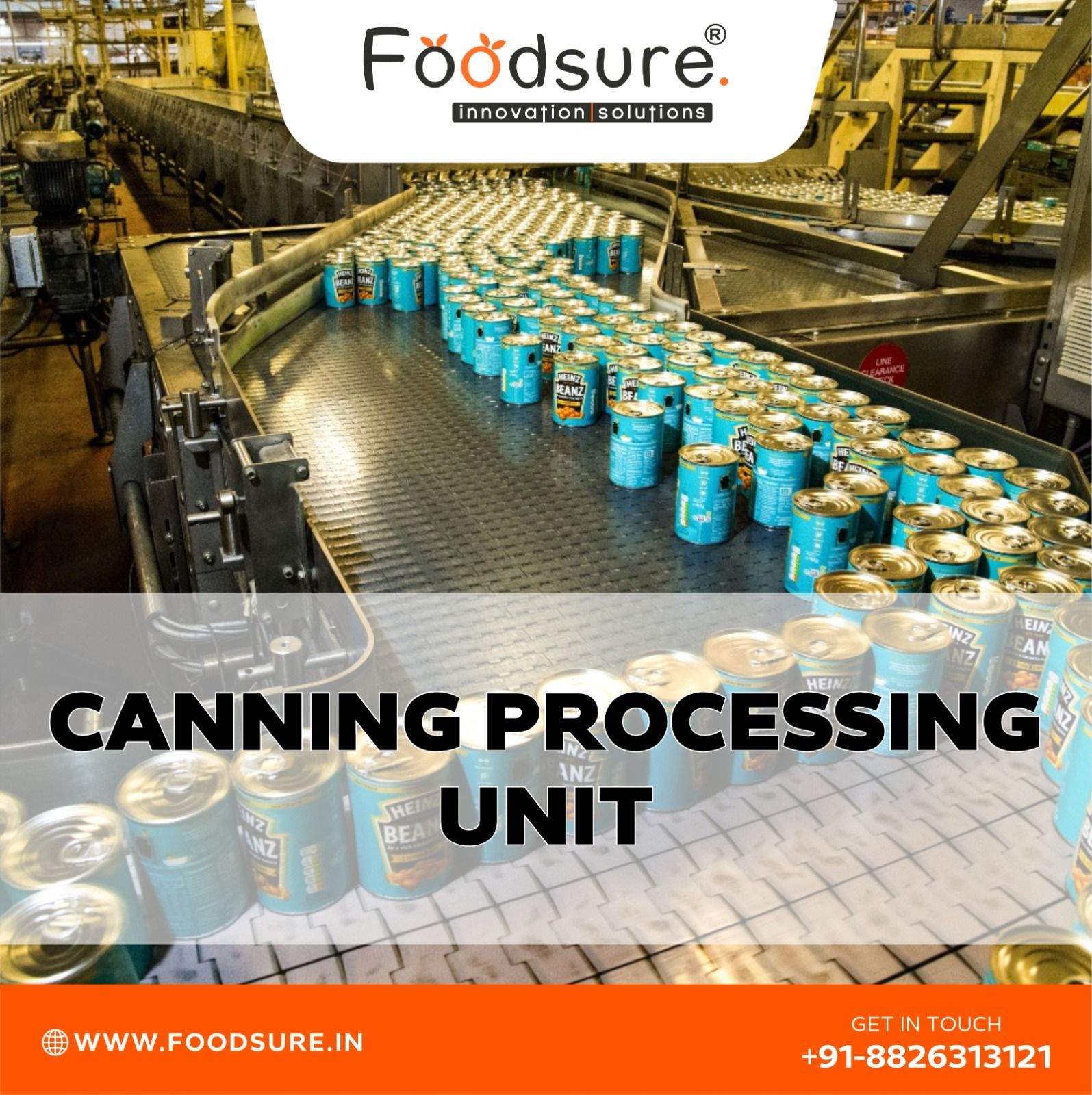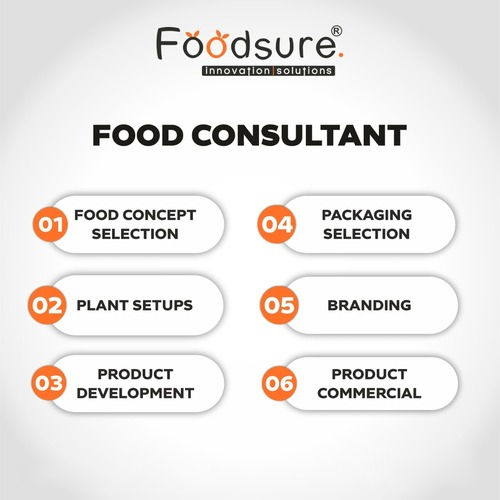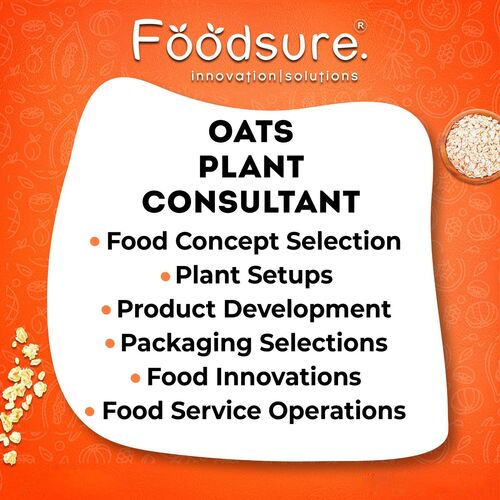Food Processing Project
Product Details:
Food Processing Project Price And Quantity
- 200000 INR/Unit
- 1 Unit
Food Processing Project Trade Information
- New Delhi
- 10 Unit Per Month
- 15 Days
- Free samples are available
- As Per Customer
- Asia, Australia, Central America, North America, South America, Eastern Europe, Western Europe, Middle East, Africa
- All India
- ISO9001:2015
Product Description
Title: Transforming Agricultural Yield: A Comprehensive Analysis of Food Processing Projects
Introduction
Food processing plays a pivotal role in transforming raw agricultural products into consumable goods, enhancing their shelf life, safety, and nutritional value. This paper delves into the multifaceted realm of food processing projects, exploring their significance, methodologies, challenges, and impact on the agricultural sector and consumer well-being.
Significance of Food Processing Projects Food processing projects contribute significantly to economic development by adding value to agricultural produce, creating employment opportunities, and fostering rural development. By mitigating post-harvest losses and enhancing product quality, these projects ensure food security and facilitate trade both domestically and internationally.
- Methodologies in Food Processing Projectsa. Pre-processing: This stage involves cleaning, sorting, and grading raw materials to eliminate impurities and ensure uniformity.b. Processing: Various techniques such as thermal processing, dehydration, fermentation, and extraction are employed to transform raw materials into value-added products while preserving their nutritional integrity.c. Packaging: Packaging is crucial for preserving product freshness, preventing contamination, and enhancing shelf appeal. Sustainable packaging solutions are gaining traction to reduce environmental impact.d. Distribution and Marketing: Efficient distribution channels and strategic marketing are essential for reaching target consumers and maximizing market penetration.
- Challenges in Food Processing Projectsa. Infrastructure: Inadequate infrastructure, particularly in rural areas, hampers the efficient operation of food processing units, leading to logistical challenges and increased costs.b. Technological Obsolescence: Rapid advancements in food processing technology necessitate continuous upgrades to remain competitive, posing financial constraints for small-scale processors.c. Regulatory Compliance: Stringent food safety regulations and compliance requirements demand substantial investments in quality control measures and certification processes.d. Supply Chain Management: Ensuring a steady supply of raw materials, especially perishable produce, and managing inventory efficiently are perennial challenges in food processing projects.
- Impact of Food Processing Projectsa. Economic Impact: Food processing projects contribute to GDP growth, create employment opportunities across the value chain, and foster entrepreneurship, particularly in rural areas.b. Nutritional Impact: Processing techniques such as fortification and enrichment enhance the nutritional content of food products, addressing micronutrient deficiencies and improving public health outcomes.c. Environmental Impact: Adoption of sustainable practices in food processing, including waste reduction, energy efficiency, and eco-friendly packaging, mitigates environmental degradation and promotes ecological sustainability.d. Social Impact: By empowering smallholder farmers, especially women, and promoting inclusive growth, food processing projects contribute to poverty alleviation and social equity.
- Case Studiesa. Agro-Processing in India: The Indian government's initiatives such as the Pradhan Mantri Kisan Sampada Yojana have bolstered the agro-processing sector, fostering innovation, enhancing competitiveness, and integrating small-scale farmers into value chains.
- b. Food Processing in Africa: In sub-Saharan Africa, food processing projects supported by organizations like the African Development Bank have catalyzed rural development, improved food security, and promoted agribusiness entrepreneurship
- .c. Vertical Integration in Food Processing: Companies like Nestl and Unilever have adopted vertical integration strategies, controlling various stages of the supply chain from sourcing raw materials to distribution, to ensure quality control and optimize efficiency.
- d. Community-Based Processing Units: Community-based processing units, such as cooperatives and farmer producer organizations, empower local communities, promote collective bargaining power, and facilitate access to markets and resources.
- Future Prospects and Recommendations. Investment in Infrastructure: Governments and private stakeholders should invest in upgrading infrastructure, including cold storage facilities, transportation networks, and processing plants, to enhance the efficiency and competitiveness of food processing projects. Research and Innovation: Continued investment in research and development is essential to foster innovation in food processing technologies, improve product quality, and address emerging consumer preferences and health concerns. Capacity Building: Training programs and skill development initiatives should be implemented to enhance the technical and managerial capabilities of stakeholders involved in food processing projects, particularly small-scale processors and farmers. Policy Support: Governments should formulate conducive policies and regulatory frameworks that promote investment, incentivize sustainable practices, and ensure fair market access for small-scale producers and processors.

Price:
- 50
- 100
- 200
- 250
- 500
- 1000+

